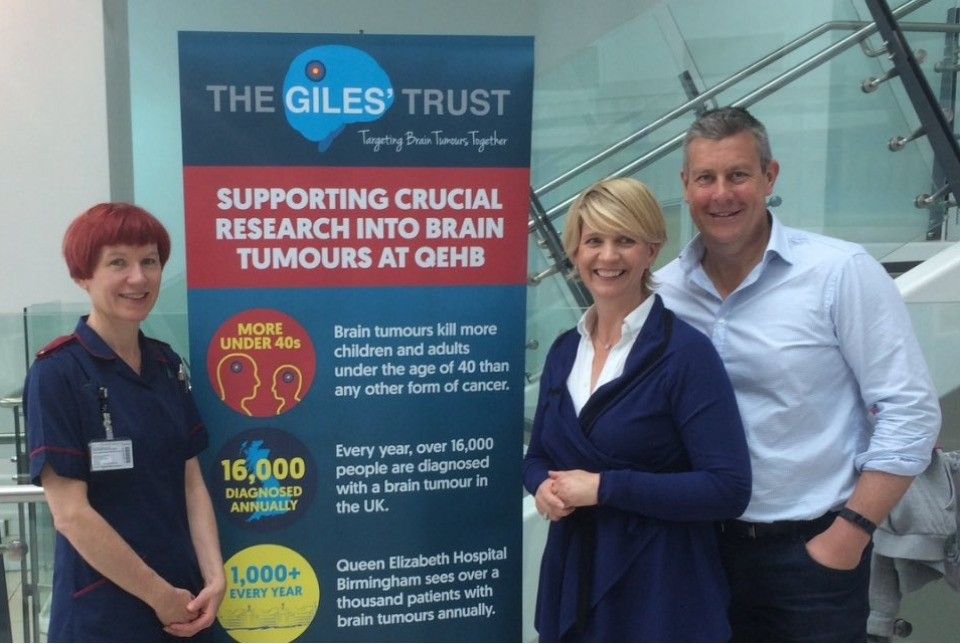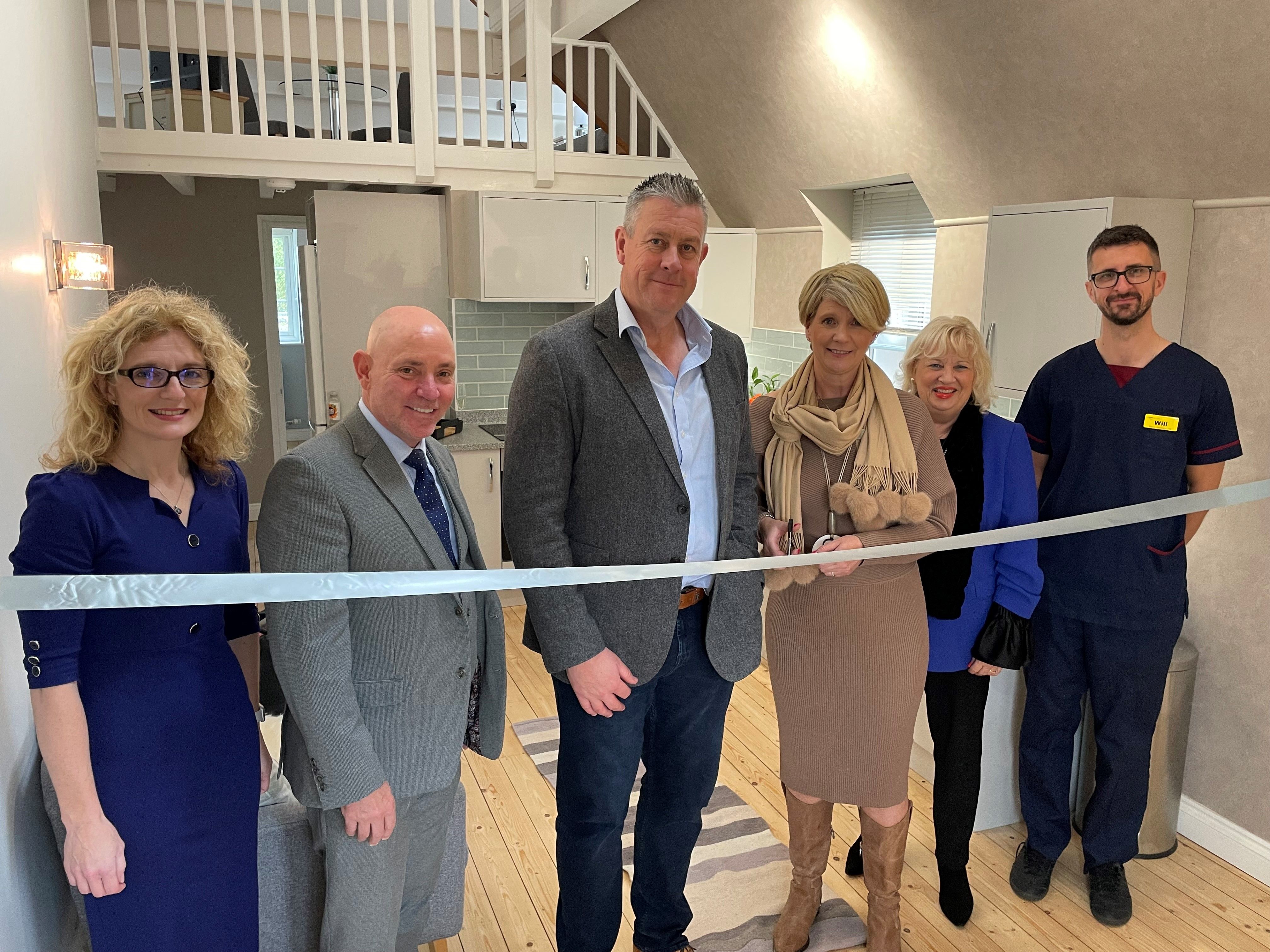
The Giles’ Trust Brain Tumour Fund
The Giles’ Trust Brain Tumour Fund was launched at Edgbaston Cricket Stadium on 16 October 2015. It was born out of a determination to help fund one of the most under-funded areas of cancer research in the UK.
In 2006, England cricketer Ashley Giles rushed back from Australia, where he had been part of the Ashes team, to be with his wife, Stine, who had been diagnosed with a brain tumour.
Stine underwent treatment at the Queen Elizabeth Hospital Birmingham (QEHB), but six years later, another two tumours were found and she became one of the first people in the country to be treated by the TomoTherapy machine.
Without this revolutionary piece of equipment, treatment options were limited, but she promised that if her treatment went well and her prognosis was good, she would dedicate herself to raising money to help brain tumour research. The pioneering therapy worked and three years later, in 2015 she and Ashley launched the charity.
Brain Tumour Research
Brain tumour research remains a central aim of the charity and it also proudly funds other research projects. In 2012, Stine was diagnosed with another tumour that required immediate treatment – and thanks to the world-class experts at QEHB, her outcome was positive. She remains under the care of her team of clinicians, yet continues to focus on fundraising efforts to help them in their research.
Since 2015, when The Giles’ Trust Brain Tumour Fund was launched, it has raised more than £1.3 million and it has also successfully lobbied the NHS to fund an additional research nurse at the hospital. The charity continues to grow in strength and has recently invested in Artificial Intelligence, a Surgical Navigational System and a Nexstim Brain Scanner. With your help, we can continue to raise vital funds for further research, much-needed equipment and support for brain tumour patients.
Please help us to fulfil our vision by donating today. If you would like more information on how you can support the Giles' Trust please contact us by emailing charities@uhb.nhs.uk or call us on 0121 371 4852. Thank you.

Artificial Intelligence
Recent advances in technology means that AI can now be used to discover new information and patterns about brain tumours that are not visible to the human eye. In other words, computers will be able to recognise what is a dying tumour and what is a growing one.
This type of AI aims to provide information about tumours earlier and more accurately than is currently possible, as a result potentially saving countless lives in the process. As a charity, University Hospitals Birmingham Charity funds equipment, research and other ‘added extras’ that the NHS is unable to fund.
Improving the overall quality of care and patient experience is what the Charity aims to achieve, and with the help of donations from generous people such as you, it will be possible to fund such a revolutionary treatment for brain tumour patients.
Why do we need to fund brain tumour research and support?
Brain tumour research remains underfunded in comparison to other diseases and illnesses funded by the NHS even though brain tumours are now the most common malignancy and cause of death in children.
Survival rates across all ages are only marginally better now than they were 40 years ago. Sadly it has not seen the same kind of medical advances that have been seen with other illnesses, for example with leukaemia and breast cancer.
What will The Giles’ Trust be funding?
The Giles’ Trust wants to support the work of the Queen Elizabeth Hospital Birmingham with its care for brain tumour patients by continuing to fund a Giles’ Trust Clinical Research Nurse. This appointment is enabling the department to support the development of new drugs and treatments. The clinical research nurse delivers therapies to patients where standardised treatment options have failed and able to offer treatments that are not routinely available.
Why is it so important to fund a Giles’ Trust Clinical Research Nurse?
Investment and research programmes have meant that there has been a variety of research undertaken in the laboratories that look at creating new drugs and treatments for brain tumour patients and, in the hospital, the NHS funds medical staff to care for patients.
However, there remains a vital missing link in enabling those new and potentially life-changing drugs and treatments to move from the laboratory shelf to the patient’s bedside tables. That missing link comes in the form of a clinical research nurse who, at the moment, cannot be funded by the NHS. The appointment of such a post would enable around 65 patients a year to be accepted onto a clinical trial.
These trials potentially have the ability to offer patients new drugs and treatments with fewer side effects, longer life expectancy and an ultimate goal of being able to beat brain tumours.
How can I help or get involved?
The Giles’ Trust is a fund that comes under the governance of Queen Elizabeth Hospital Birmingham Charity. You can get involved in most of the Charity's events; just let us know you would like to raise funds for The Giles’ Trust when you get in touch. Alternatively, you might want to set something up yourself. If you do, please let us know by emailing charities@uhb.nhs.uk or call us on 0121 371 4852. Thank you.


